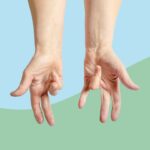Alongside standard treatments, lifestyle changes can play a key role in reducing the frequency and severity of UC symptoms and flares, as well as boosting your mood and quality of life.
“I always recommend lifestyle modifications to my patients,” says Supriya Rao, MD, a gastroenterology, internal medicine, obesity medicine, and lifestyle medicine physician and a professor of gastroenterology at Tufts University School of Medicine in Boston. “Your gut thrives on the boring stuff — whole foods, plant-based diet devoid of processed foods and red meat, no smoking or drinking alcohol, staying hydrated with water, getting movement or exercise in each day, reducing your stress (yoga, meditation, or mindfulness) and getting good, quality sleep each night.”
Diet
Currently, there is no evidence that links any specific food to the development of UC. However, certain foods may trigger your symptoms, and the types of foods usually vary from person to person. If you suspect certain foods may trigger your symptoms, you may have to modify your diet to limit or avoid those triggers.
If you don’t know what foods might be causing your flares, you may want to try keeping a food journal and record what you eat, and any symptoms you might experience. This may help you figure out what foods are causing your UC symptom flares.
In 2024, the American Gastroenterological Association published a recommendation that practitioners should advise their patients with IBD to follow the Mediterranean diet. This diet focuses on eating a diet rich in fruits, vegetables, healthy fats, whole grains, and lean proteins, while limiting ultraprocessed foods, red meats, salt, and added sugar.
Exercise
While exercise may not necessarily improve UC symptoms, it still has myriad health benefits. It can boost your mood, help you maintain a healthy weight, and improve your quality of life, to name a few. That’s important because obesity may interfere with UC medication effectiveness, as well as worsen your overall physical health.
Be sure to talk to your doctor before starting a new exercise routine to make sure it’s right for you. If you’re not sure where to start or what exercises to try, ask your doctor for recommendations. They can help you find an activity or plan that works for you.
If you’re having a flare, it’s usually best to limit exercise until your symptoms clear up and your energy returns.
Stress Management
Stress is a common trigger of UC, meaning it can cause your symptoms to worsen. “One person with UC I work with found that flare-ups were triggered by stress, hence mental health strategies including cognitive behavioral therapy became even more important alongside GI treatment,” says Matt Grammer, a licensed professional clinical counselor with supervision designation and founder of Therapy Trainings, a continuing education company for mental health professionals.
That’s why it’s important to do your best to manage stress. Activities that can help include:




